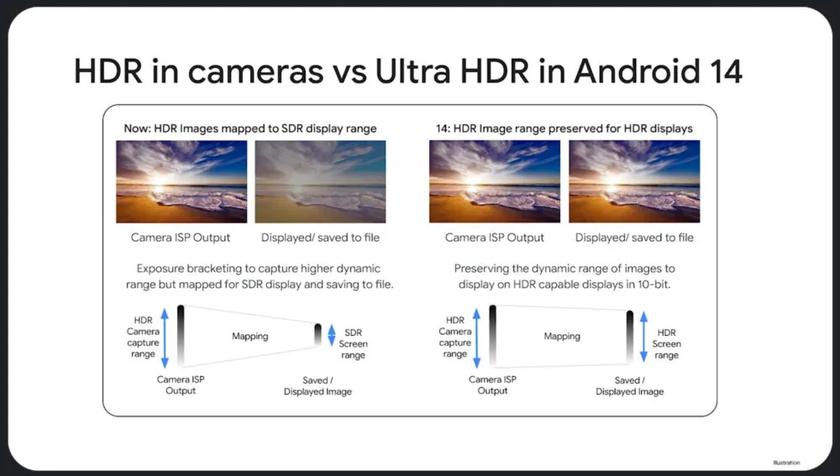Google has updated its Jetpack CameraX library to add support for capturing Ultra HDR images.
Here’s What We Know
Ultra HDR is a new image format introduced in Android 14 that allows you to store SDR and HDR versions of an image in the same file.
Ultra HDR is a JPEG-based image format that can store both SDR and HDR versions of an image in a single file. This means that Ultra HDR images can be viewed on any device, regardless of whether it supports HDR. On devices with HDR displays, Ultra HDR images will appear with richer colours and better contrast.
Here’s How It Works
Ultra HDR images are created by capturing both SDR and HDR versions of an image and then combining them into a single file. The HDR gain map used to create the HDR version of the image is stored in the metadata of the JPEG file.
Ultra HDR has a number of advantages over regular JPEG images:
- Improved detail in shadows and highlights: Ultra HDR can preserve more detail in shadows and highlights than regular JPEGs.
- Richer colours: Ultra HDR can display richer and more realistic colours than regular JPEGs.
- Improved contrast: Ultra HDR can provide better contrast than regular JPEGs.
How to use Ultra HDR with CameraX
Developers can use the new CameraX API to capture Ultra HDR images. The API is available in version 1.4.0 of the CameraX library. Currently, only a few applications support Ultra HDR. These include Google Chrome, the default camera app on some Android devices, and a few others.Ultra HDR is supported on any device running Android 14 or later. However, you need a device with an HDR display to take full advantage of Ultra HDR.
Source: Android Authority

